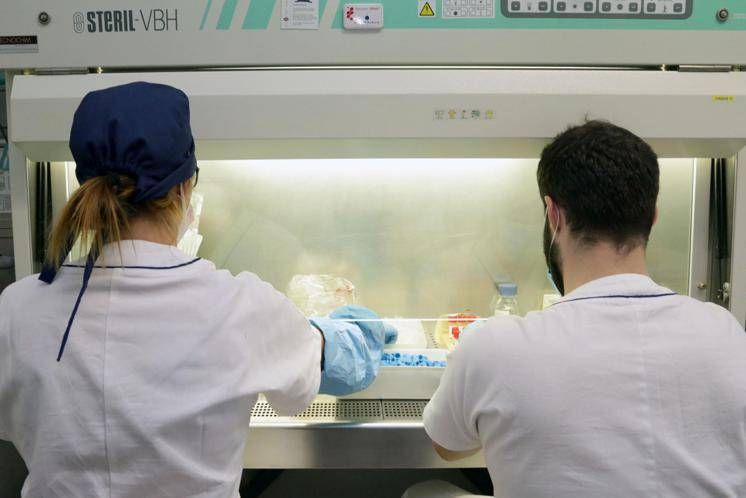Some rare genetic variants, if present simultaneously, can significantly increase – by up to a fifth – the risk of getting Parkinson’s. This is the conclusion of an Italian study published in ‘Molecular Neurodegeneration’, born from the collaboration between the Irccs Neuromed of Pozzilli (Isernia) and the ‘Adriano Buzzati Traverso’ Institute of Genetics and Biophysics of the National Research Council of Naples (Cnr -Igb). The researchers sequenced the genome of 500 patients with Parkinson’s disease, also identifying genes that have never before been associated with the disease. The prospect that opens up is that of a genetic test to be used in population screening for early diagnosis.
The authors – explains a note – have examined the genetic data of two types of patients: those belonging to families in which Parkinson’s disease is recurrent and those in which the disease had appeared without being familiar (so-called sporadic cases) . Scientists also analyzed gene expression, i.e. the process of transcribing genetic information into functional proteins, both in human tissues and in animal models.Five of the genes studied were found to be particularly expressed in dopaminergic neurons of Substantia Nigra, the area of brain whose degeneration is the main cause of Parkinson’s. “This is the largest genetic study carried out on Italian patients with Parkinson’s – we read – using the latest generation sequencing methods”.
“We were able to identify variants related to the risk of Parkinson’s in 26 genes, 16 of which had not previously been associated with the disease – reports Alessandro Gialluisi, researcher at the Department of Epidemiology and Neuromed Prevention, first author of the work – And we were also able to find out how most of these genes are involved in pathways important for the functionality of the dopaminergic system, whose degeneration leads to the development of the disease “. An “important” finding from the study is that “the variants examined may have some sort of cumulative effect,” the researchers note.
‘Possible future test to assess the likelihood of getting sick’
“The simultaneous presence of two or more of these rare variants – highlights Teresa Esposito, Cnr-Igb researcher and head of the Cnr Laboratory at Neuromed, the latest author of the study – was associated with an increase in the probability of developing Parkinson’s in 20 % of patients. We can speak of a growing ‘load’ of mutations which, in the future, could lead us to assess the risk of disease precisely by identifying the number of harmful variants present in a person’s DNA “.
“These results appear promising in the perspective of perfecting molecular diagnostic techniques aimed at early identification of people at high risk – comments Antonio Simeone, director of the ‘Buzzati-Traverso’ Institute – On the one hand, other studies will be needed to increase the number of diagnosable patients and on the other to understand and develop potential therapeutic approaches, first of all those based on pharmacological and regenerative medicine developments “. However, “what we can think of, for the nearer future, is a genetic test that takes into account the burden of harmful variants present in an individual’s genome”.
According to the expert, “important possibilities could open up to start population screening and therefore – he concludes – improve the early diagnosis of a pathology that develops over time, and in which symptoms only manifest themselves when patients have already lost 50%. dopaminergic neurons, those most involved in Parkinson’s “.
